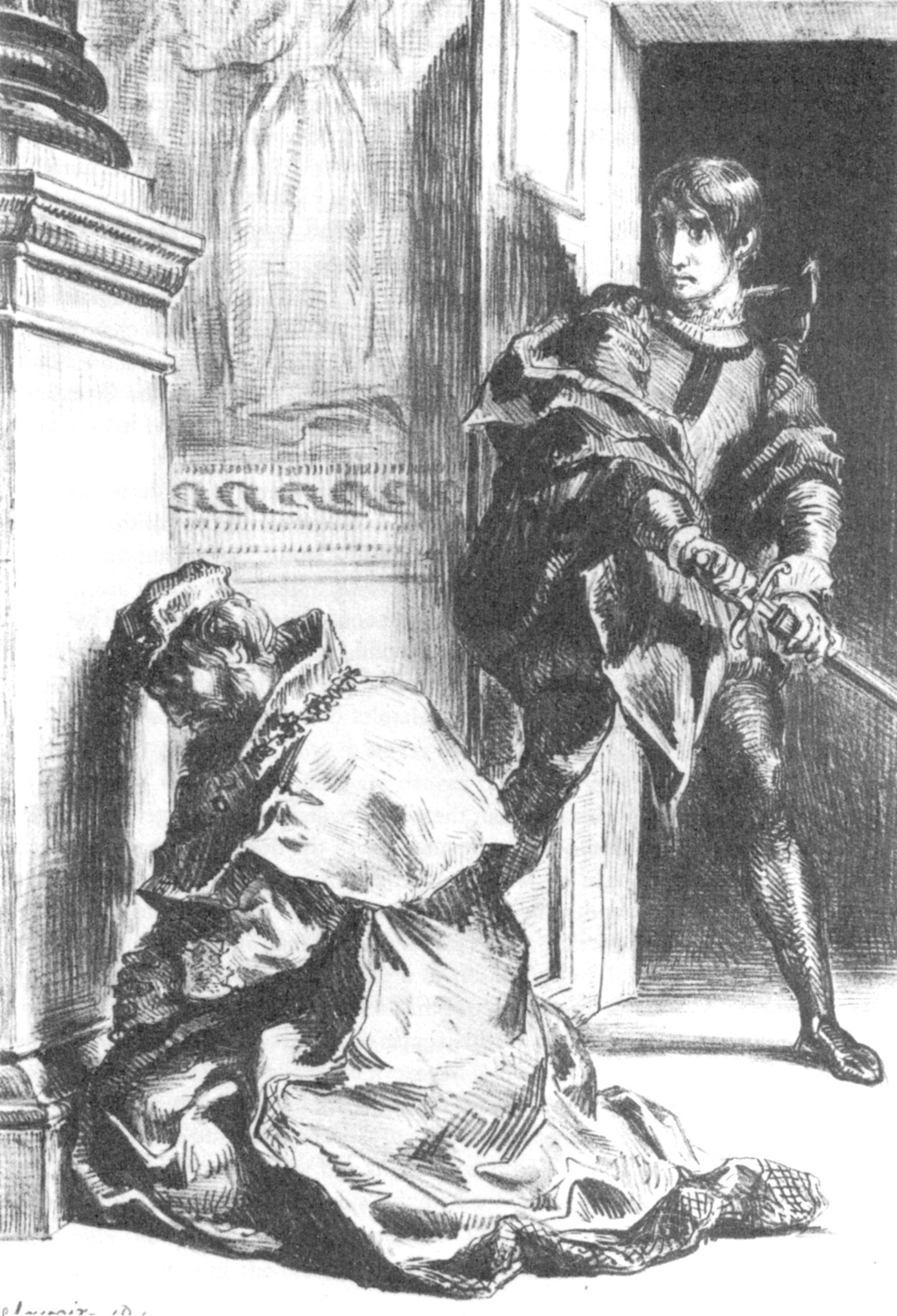The Evil Uncle is a well-established and familiar form in fiction, and has been since – well, let’s take a look, shall we?
The classickest of evil uncles, to my mind, is Hamlet’s Uncle Claudius, who kills his brother (Hamlet Senior), steals his brother’s wife (in that order) and usurps the throne which was rightfully Hamlet Senior’s and is now rightfully Hamlet Junior’s. Confronted with this heaping pile of villainy, he feels a modicum of remorse (see Act III, Scene iii) – but not enough to actually try to put things right to the extent that he still can.
 Slightly younger than Uncle Claudius is Uncle Richard, aka the Duke of Gloucester. (Only slightly younger – c. 1592 as opposed to c.1599-1602. Not 1485 – I am putting him in the fictional category as Shakespeare’s version doesn’t adhere all that closely to historical fact. Probably because he was writing under the rule of the grand-daughter of the man who killed (and replaced) Richard.) Shakespeare’s Richard orphans one niece and nephew, marries off the former to a nobody and imprisons the latter, has two other nephews murdered, and tries to marry another niece. That is a bad uncle.
Slightly younger than Uncle Claudius is Uncle Richard, aka the Duke of Gloucester. (Only slightly younger – c. 1592 as opposed to c.1599-1602. Not 1485 – I am putting him in the fictional category as Shakespeare’s version doesn’t adhere all that closely to historical fact. Probably because he was writing under the rule of the grand-daughter of the man who killed (and replaced) Richard.) Shakespeare’s Richard orphans one niece and nephew, marries off the former to a nobody and imprisons the latter, has two other nephews murdered, and tries to marry another niece. That is a bad uncle.
Zipping on two or so centuries, to the late 1830s, we come to Kate and Nicholas Nickleby’s Uncle Ralph, a cold-hearted Scrooge of a man who uses his niece as bait for objectionable men and tries to ruin his nephew. He veers from the classic mould in not actually killing his brother (possibly because his brother doesn’t have a throne), but he doesn’t give a damn that he’s dead, either.

C.S. Lewis furnished the world with two fine examples of the Evil Uncle genus. First (in 1951), Prince Caspian’s Uncle Miraz, who returns to the purity of the classics by killing his brother and pinching his crown – as well as planning to kill the rightful heir. Unlike Claudius, however, he does not pinch his brother’s widow, being already married to the hilariously named Prunaprismia.
Lewis’ second example is the magician who has the nephew in The Magician’s Nephew (1955) – Digory’s Uncle Andrew. A fool, perhaps, but an ambitious, meddling and arrogant fool, which to my mind qualifies him for the title of an Evil Uncle.
“Men like me, who possess hidden wisdom, are freed from common rules just as we are cut off from common pleasures. Ours, my boy, is a high and lonely destiny.”
As he said this he sighed and looked so grave and noble and mysterious that for a second Digory really thought he was saying something rather fine. But then he remembered the ugly look he had seen on his Uncle’s face… and all at once he saw through Uncle Andrew’s grand words. “All it means,” he thought to himself, “is that he thinks he can do anything he likes to get anything he wants.”

So far the list of Evil Uncles seems to be dominated by the fruitful minds of the male of the species: two of Shakespeare’s, two of Lewis’, and one of Dickens’. But now, at last, we come to an Evil Uncle from the mind of a woman.
The woman in question is Ellis Peters, creator of Brother Cadfael, and also of Iveta de Massard’s Evil Uncle Sir Godfrid Picard (from The Leper of Saint Giles, 1981). He may be further from the murdering, throne-stealing Claudian mould than many of the above, but he’s still prepared to force his niece to marry a rather nasty man who is older than her father, purely for his own financial gain. And to blackmail her into pretending to like it by threatening the life of a young man she cares for. In short, a rotter.
The final Evil Uncle of the list is due to make his appearance in January 2018. Also from the mind of a woman (mine, in fact), he follows the classic mould in killing his brother to seize the throne, and trying to kill the rightful heir as well. (Why mess with a winning combination?)
 It is perhaps worth noting that of the first six Evil Uncles on the list (spoilers!), five are dead by the time the tale is wound up. I decided to be boldly different, and as a result, the death of Princess Lily’s Evil Uncle Phelan is announced before Chapter One is wound up. But of course, that’s not the whole story…
It is perhaps worth noting that of the first six Evil Uncles on the list (spoilers!), five are dead by the time the tale is wound up. I decided to be boldly different, and as a result, the death of Princess Lily’s Evil Uncle Phelan is announced before Chapter One is wound up. But of course, that’s not the whole story…
What fictional Evil Uncles have I missed? Feel free to add entries to the list below!









